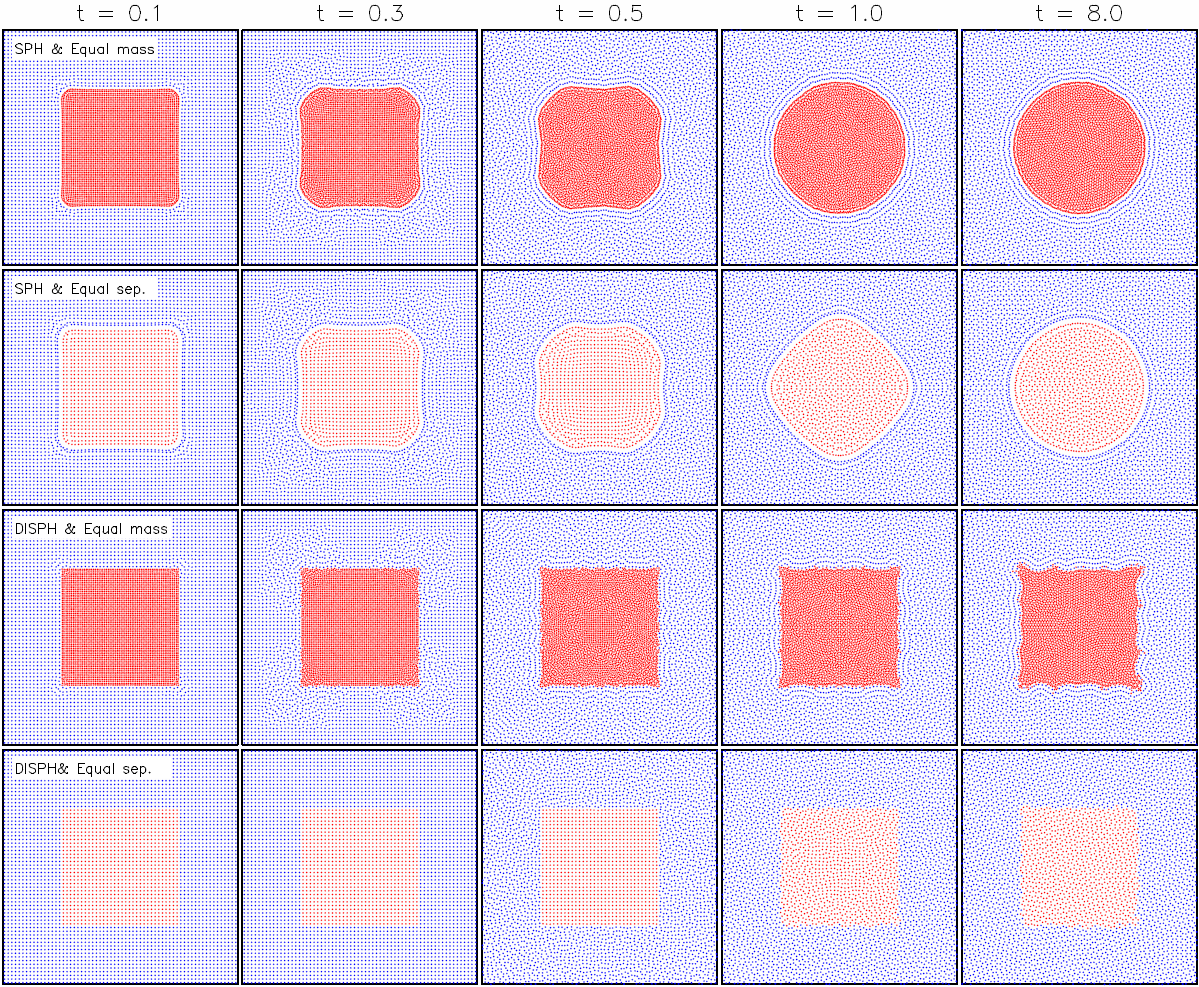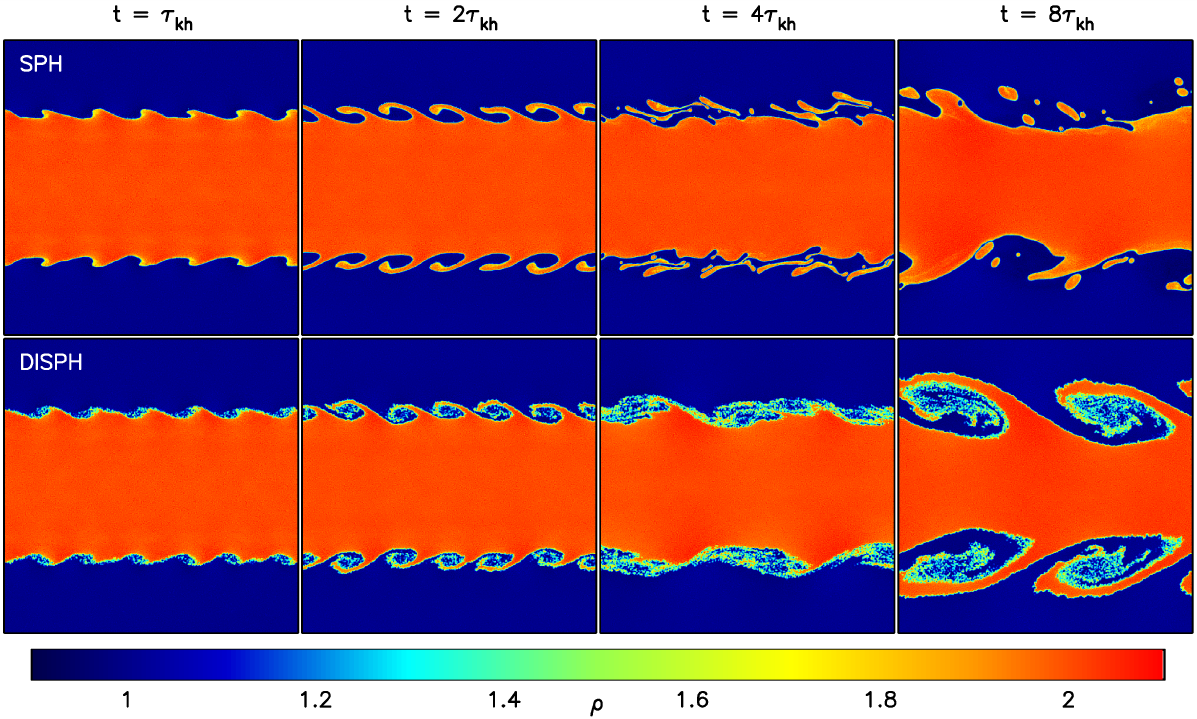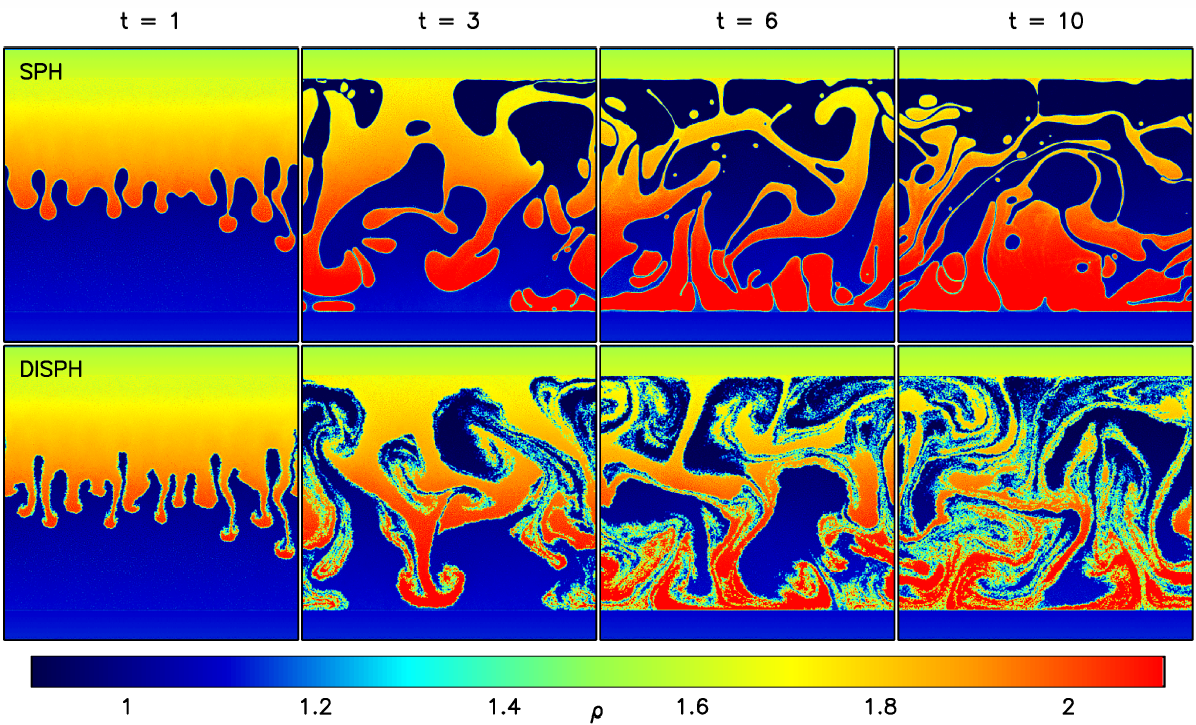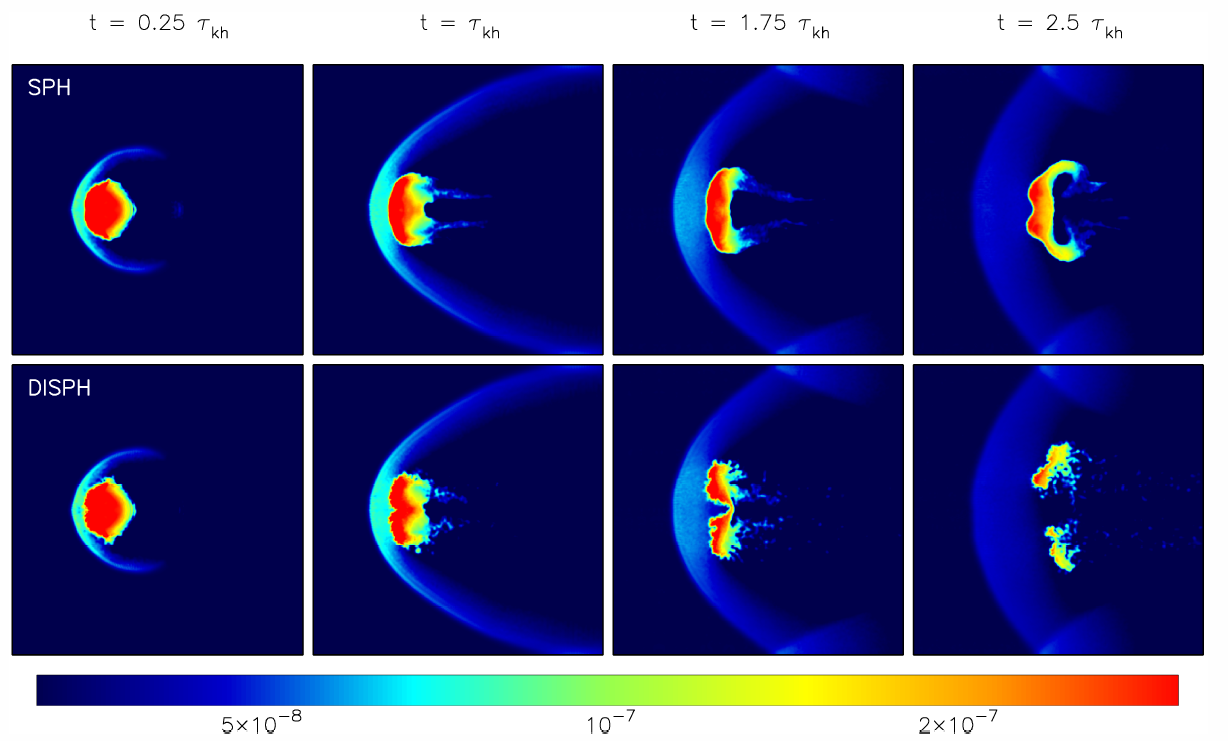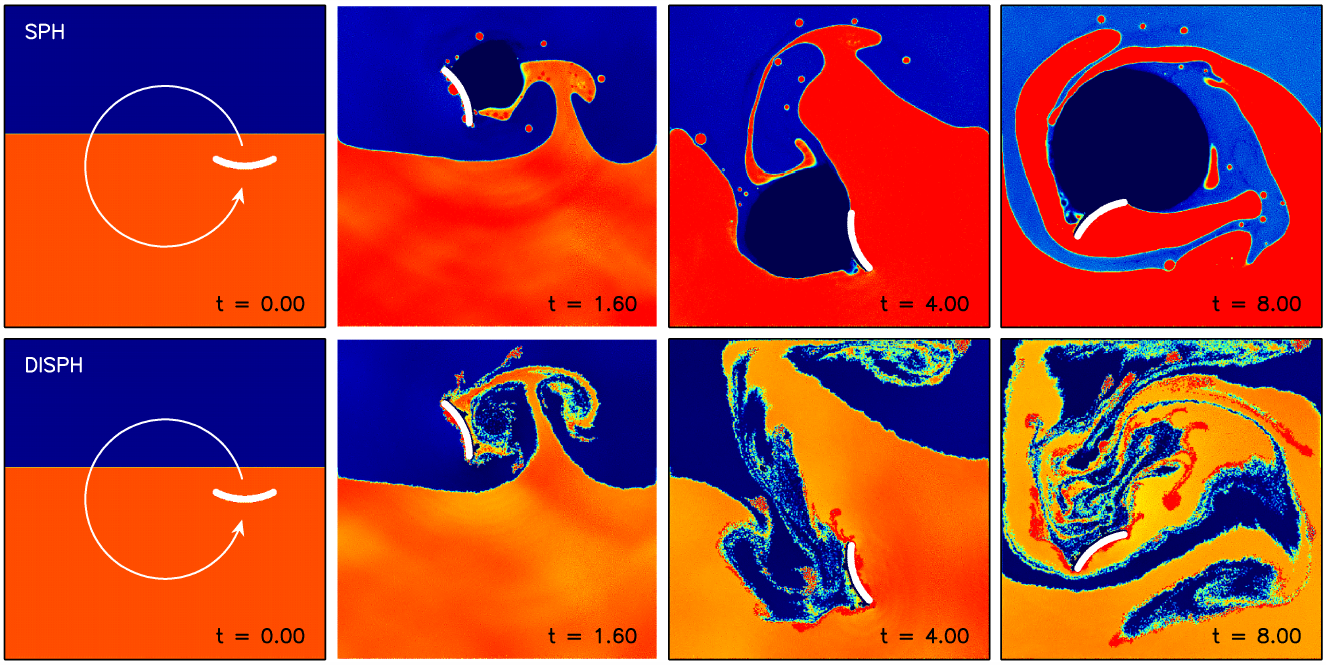A Density Independent Formulation of Smoothed Particle Hydrodynamics
Authors: Takayuki Saitoh & Junichiro Makino (Tokyo Institute of Technology)
Link to Astro-ph &
ADS
Abstract:
The standard formulation of the smoothed particle hydrodynamics (SPH) assumes
that the local density distribution is differentiable. This assumption is used
to derive the spatial derivatives of other quantities. However, this assumption
breaks down at the contact discontinuity. At the contact discontinuity, the
density of the low-density side is overestimated while that of the high-density
side is underestimated. As a result, the pressure of the low (high) density
side is over (under) estimated. Thus, unphysical repulsive force appears at the
contact discontinuity, resulting in the effective surface tension. This tension
suppresses fluid instabilities. In this paper, we present a new formulation of
SPH, which does not require the differentiability of density. Instead of the
mass density, we adopt the internal energy density (pressure), and its arbitrary
function, which are smoothed quantities at the contact discontinuity, as the
volume element used for the kernel integration. We call this new formulation
density independent SPH (DISPH). It handles the contact discontinuity without
numerical problems. The results of standard tests such as the shock tube,
Kelvin-Helmholtz and Rayleigh-Taylor instabilities, point like explosion, and
blob tests are all very favorable to DISPH. We conclude that DISPH solved most
of known difficulties of the standard SPH, without introducing additional
numerical diffusion or breaking the exact force symmetry or energy conservation.
Our new SPH includes the formulation proposed by Ritchie & Thomas (2001) as a
special case. Our formulation can be extended to handle a non-ideal gas easily.
The manuscirpt with high-resolution figures is here
Old manuscirpt is here
Movies
|
